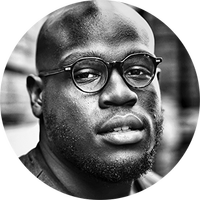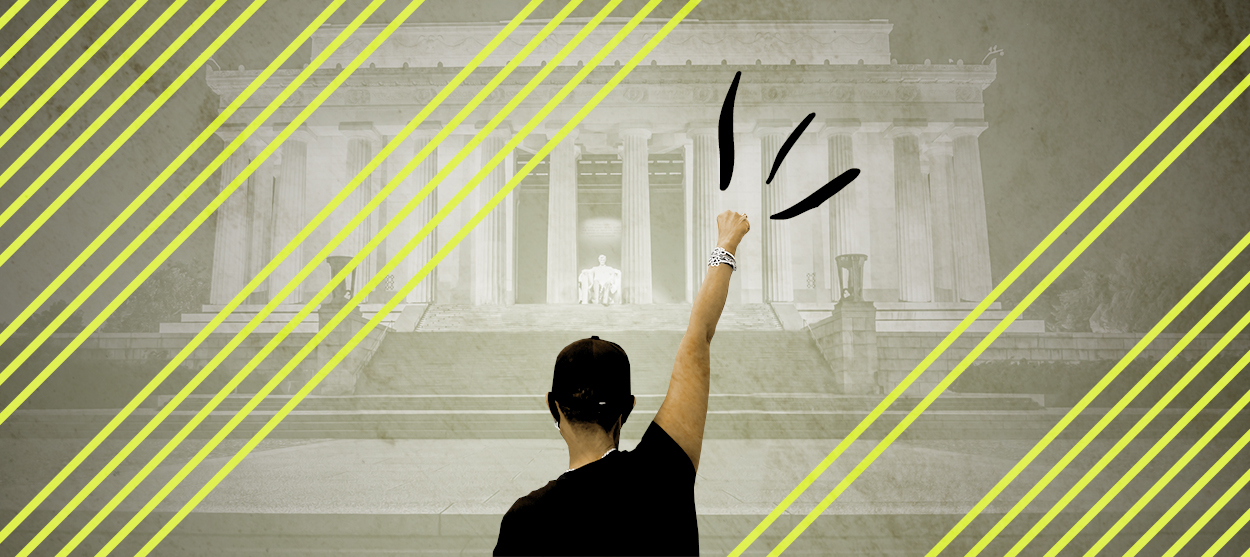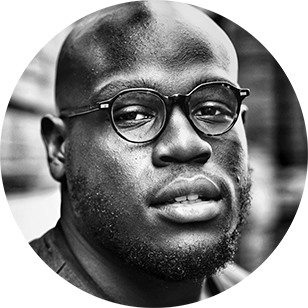America's broken promise to Black people
This country promises opportunity, but cuts opportunity short for Black people


A free daily email with the biggest news stories of the day – and the best features from TheWeek.com
You are now subscribed
Your newsletter sign-up was successful
There's a familiar promise embedded in my head: You can become anything.
Parents, teachers, pastors, graduation speakers, and even melodically-gifted Sesame Street muppet characters repeated that promise to me when I was a child. But as a Black kid growing up in Oklahoma, I'd also hear another refrain, one that rebuffed "proper English": We can't have nothing. I knew I'd spend my life balancing the promise of endless possibility for personal achievement with the reality that Black folk in America can't seem to have anything — or at least, we can't have anything permanently.
My parents and grandparents came to America in the 1960s and '70s from Jamaica. By almost every measure, my parents have achieved the American Dream. My dad and mom, though they did not receive their college degrees until well into their 40s, have established themselves in their careers. My dad climbed rung after slippery rung to high levels of management in a company he has spent his life helping. And my mom is a nurse with nearly 30 years of experience. They forged their own paths in this country, moving far from the excitement of New York for the enduringly flat and predictable state of Oklahoma. They bought a home in which to raise their three kids. They did everything in their power to ensure their own children had access to opportunity.
The Week
Escape your echo chamber. Get the facts behind the news, plus analysis from multiple perspectives.

Sign up for The Week's Free Newsletters
From our morning news briefing to a weekly Good News Newsletter, get the best of The Week delivered directly to your inbox.
From our morning news briefing to a weekly Good News Newsletter, get the best of The Week delivered directly to your inbox.
And in many ways, it worked. All of us went to college. I went to grad school — twice — and picked up three degrees from institutions that made me look around wondering how I got there and if I was good enough to stay because so few of my fellow students looked like me.
One sibling, who finished college two years ago, is working actively in criminal justice reform and is considering law school. He actually has the time to take a break from college, which he attended on a full-ride scholarship, to work on changing the world, or at least a piece of it, before going to what will likely be a highly-ranked law school. My other sibling is still in school but studying for the GRE to prepare for a Ph.D., or perhaps a Master's degree, or perhaps time doing work elsewhere. But she has that thing that my grandparents immigrated here to achieve: optionality. My siblings each have a choice in their own destinies — or at least I hope they do.
Jacob Blake likely thought that all the struggle and mire his ancestors and their counterparts endured gave him that same privilege. His grandparents, like my own, had survived far too much racism for their children to become anything but exactly what they desired. According to Blake's dad, "My father was there for the first march in Washington. He went through Selma to Montgomery. He went across the Edmund Pettus. He marched for open housing in Evanston, Illinois."
Yet Blake was nearly killed by police for making the relatively benign decision to leave his car and break up a fight.
A free daily email with the biggest news stories of the day – and the best features from TheWeek.com
You can become anything. But we can't have nothing.
I used to think that in my home, I'd be safe, so long as I didn't leave the house looking like the "threat" some white people fear I could be fine. But then Breonna Taylor did that. She chose to be in her house, yet she was the target of a deadly ambush by police officers.
The list goes on. And the longer that list grows, the more I'm convinced that, underpinning the resistance to our objection to being murdered is the not-so-subtle notion that we, Black folks, clamoring to leave the margins, are asking for too much. Some feel we have been given enough; how could we want more? They'll use stories of my family — Black folks "succeeding" — as a sign that we have enough and, more dangerously, that my family's trajectory is the pathway by which all Black people should be expected to "succeed."
It's worth saying that standing with Black folks — saying that we matter, acknowledging that we've endured more pain than we can bear — might rob you of your ability to become anything you want to be, too. This is what happened to three white protesters — Joseph Rosenbaum, Anthony Huber, and Gaige Grosskreutz — who were shot while standing against police brutality in Kenosha, Wisconsin, in August. Two of them died. A 17-year-old white kid named Kyle Rittenhouse has been charged with their murder.
I still believe that if I live long enough, the adage my mother and father, my teachers and pastors, Big Bird and Elmo, and every other inspirational character seeded in my young mind, could, in fact, come true. But no matter how much I may accomplish, killing after killing after killing reminds me that I cannot become enough of a person to retain the ability to choose freely to live. Because, for Black people in America, the favorable promise of becoming anything is outweighed by the reality of having nothing.
Want more essential commentary and analysis like this delivered straight to your inbox? Sign up for The Week's "Today's best articles" newsletter here.
Caleb Gayle is a writer and author of a forthcoming book for Riverhead Books about a narrative account of how many Black Native Americans were marginalized by white supremacy in America. His work has appeared in the New York Times, The New Republic, Time Magazine, and more. Caleb Gayle is a New America Fellow.
-
 Tourangelle-style pork with prunes recipe
Tourangelle-style pork with prunes recipeThe Week Recommends This traditional, rustic dish is a French classic
-
 The Epstein files: glimpses of a deeply disturbing world
The Epstein files: glimpses of a deeply disturbing worldIn the Spotlight Trove of released documents paint a picture of depravity and privilege in which men hold the cards, and women are powerless or peripheral
-
 Jeff Bezos: cutting the legs off The Washington Post
Jeff Bezos: cutting the legs off The Washington PostIn the Spotlight A stalwart of American journalism is a shadow of itself after swingeing cuts by its billionaire owner
